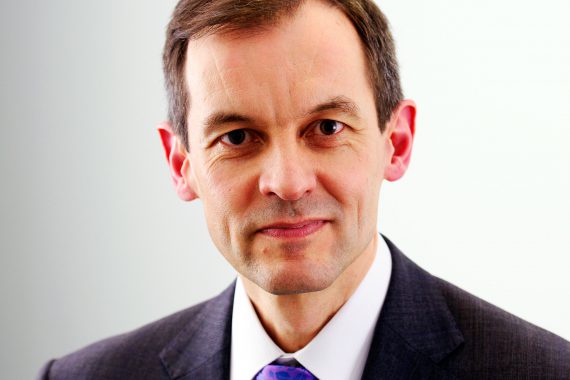GP contract negotiations delayed ‘because of Brexit’, says GPC

Exclusive The unusually late conclusion of the annual GP contract negotiations is due to the UK’s vote to leave the EU, the GPC has told Pulse.
GPC deputy chair Dr Richard Vautrey said this year’s negotiations are ‘no more difficult than normal’ but the delay is due to the ‘wider political landscape’ which has changed.
The issues under discussion as part of the contract negotiations include the future of the QOF and DESs, the annual contractual uplift and ensuring GP practices are accurately reimbursed for their expenses, including the hike in CQC fees.
There is little indication about when the negotiations will conclude, but Dr Vautrey told Pulse they will be ‘as soon as possible’.
He added: I think it is unusual that they have gone into the New Year, but we want to try and resolve issues as quickly as possible, so we can let all practices know what the outcome is.’
Dr Vautrey said he thinks that ‘the main reason [for the delay] really has been Brexit’.
He said: ‘The change in Government, the change of circumstances, from Number 10 downwards really, has caused the initial delay. We didn’t really get started with any serious form of negotiation until much later in the year than what would normally have happened, and that has had an implication right through the process.
‘So it is not that the negotiations are more difficult than normal, it’s more that the wider political landscape changed.’
Dr Vautrey said that the mechanism to calculate expenses – one of the outstanding demands from the GPC’s Urgent Prescription for General Practice – was ‘part of ongoing negotiations’ and that the the GPC hopes ‘to agree a process that would give certainty to practices that their rising expenses will be covered’.
But the GPC may face an uphill struggle to ensure all increases in expenses are reimbursed.
In recent supplementary evidence submitted to the DDRB said that ‘it does not not necessarily follow that, just because a particular expense category has increased in the past… we should necessarily automatically fund an increase relating to that going forward’.
It also hit back at the BMA’s evidence claim that GPs have maximised their ability to make efficiencies, saying that ‘practices do have opportunities to reduce their costs’, including through federating – or even simply clubbing together to purchase supplies and achieve economies of scale’.
Expected expense increases for next year include not just indemnity price hikes – some £30m of which will be covered under promises made in the General Practice Forward View – but also massive hikes to CQC fees.
What else can GPs expect from contract negotiations?
With regards to the core funding uplift, the Department of Health has mandated the DDRB to make a recommendation in line with its 1% cap on pay rises, with health secretary Jeremy Hunt suggesting this could be tweaked to specifically motivate a growing cohort of salaried GPs.
Dr Vautrey says: ‘They have said 1% [in the mandate]… but I think the other thing to remember as well is that a lot of what we negotiate now you also need to add local funding streams as well. So for many practices, the changes to the funding that comes directly from CCGs provide a significant part of their running costs now as well.’
In its evidence to the DDRB, the BMA suggested GPs should get a 2% pay rise.
Contract negotiations will also be focusing on the future of QOF, after the parties agreed last year to make no changes in 2016/17 with the view to review ‘the end’ of the clinical incentive scheme. They also agreed to negotiate an end to the bureaucracy-heavy Avoiding Unplanned Admissions DES.
But, as Pulse reported last week, this will not be replaced with a DES to take forward Mr Hunt’s ambitious one-stop shop plans for GP practices to do outpatients appointments, with the health secretary instead targeting local enhanced services for the rollout.
Pulse July survey
Take our July 2025 survey to potentially win £1.000 worth of tokens

Visit Pulse Reference for details on 140 symptoms, including easily searchable symptoms and categories, offering you a free platform to check symptoms and receive potential diagnoses during consultations.










